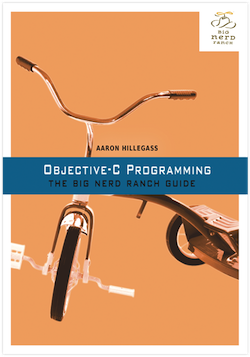25 Mar 2013
 A man found a cocoon of an emperor moth. He took it home so that he could watch the moth come out of the cocoon. On the day a small opening appeared, he sat and watched the moth for several hours as the moth struggled to force its body through that little hole.
A man found a cocoon of an emperor moth. He took it home so that he could watch the moth come out of the cocoon. On the day a small opening appeared, he sat and watched the moth for several hours as the moth struggled to force its body through that little hole.
Then it seemed to stop making any progress. It appeared as if it had gotten as far as it could and it could go no farther. It just seemed to be stuck.
Continue reading →
19 Mar 2013
After you get a Raspberry Pi up and running, you may want to take a few screenshots so you can share the experience with others. Here’s how.
Continue reading →
13 Mar 2013
 If you are fortunate enough to work in the technology industry, you do not need permission to move forward. So do it now.
If you are fortunate enough to work in the technology industry, you do not need permission to move forward. So do it now.
Yes, you will have to define it for yourself.
ChiPMA – Product Management
A few years ago I had the pleasure of hearing Suneel Gupta speak at a Chicago Product Management Association meeting hosted by Pathfinder Development. Three points raised during Gupta’s talk:
- Conditions are never perfect. So start now.
- What does start mean? Figure that out, and draw out the plan.
- If you suck at first, keep going.
- Conditions are never perfect.
Continue reading →
03 Mar 2013
Reflecting on a quote I became aware of recently:
Technology is a gift of God. After the gift of life it is perhaps the greatest of God’s gifts. It is the mother of civilizations, of arts and of sciences.
~Freeman Dyson, English Physicist
Well said, Freeman Dyson. Praise God for technology.
Continue reading →
28 Feb 2013

You will be baffled from time to time… Stick with this book. I promise the bewilderment will cease before you get to the final page.
~ Aaron Hillegass, Author
Finding the Right Objective-C Book
I’ve gone through several Objective-C books in my quest to master RubyMotion. You read that right: I’m learning Objective-C so that I can master RubyMotion. Objective-C Programming: The Big Nerd Ranch Guide is one book that clicks for me. Here’s why.
Continue reading →
 A man found a cocoon of an emperor moth. He took it home so that he could watch the moth come out of the cocoon. On the day a small opening appeared, he sat and watched the moth for several hours as the moth struggled to force its body through that little hole.
A man found a cocoon of an emperor moth. He took it home so that he could watch the moth come out of the cocoon. On the day a small opening appeared, he sat and watched the moth for several hours as the moth struggled to force its body through that little hole.



 If you are fortunate enough to work in the technology industry, you do not need permission to move forward. So do it now.
If you are fortunate enough to work in the technology industry, you do not need permission to move forward. So do it now.